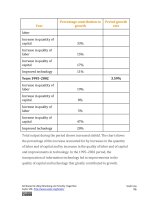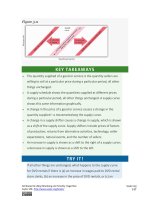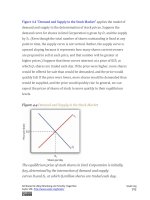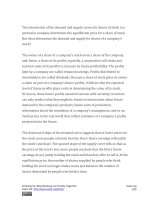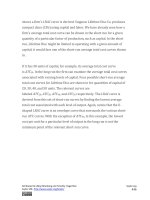Authors libby rittenberg 826
Bạn đang xem bản rút gọn của tài liệu. Xem và tải ngay bản đầy đủ của tài liệu tại đây (383.02 KB, 1 trang )
The Public Choice Perspective
Public choice theory discards the notion that people in the public sector
seek to maximize net benefits to society as a whole. Rather, it assumes that
each participant in the public sector seeks to maximize his or her own
utility. This section introduces the flavor of the public choice approach by
examining two of its more important conclusions: that many people will
abstain from voting, and that legislative choices are likely to serve special
interests.
Economics and Voting: The Rational Abstention
Problem
Public choice theory argues that individuals do not leave their selfinterests behind when they enter the voting booth—or even when they are
thinking about whether to go to the voting booth. The assumption of utility
maximization by voters helps us to understand why most people do not
vote in most elections.
Suppose your state is about to hold a referendum on expanded support for
state recreation areas, to be financed by an increase in the state sales tax.
Given your own likely use of these areas and the way in which you expect
to be affected by the tax, you estimate that you will be better off if the
program passes. In fact, you have calculated that the present value of your
net benefits from the program is $1,000. Will you vote?
As a utility maximizer, you will vote if the marginal benefits to you of
voting exceed the marginal costs. One benefit of voting is the possibility
that your vote will cause the measure to be passed. That would be worth
Attributed to Libby Rittenberg and Timothy Tregarthen
Saylor URL: />
Saylor.org
826
